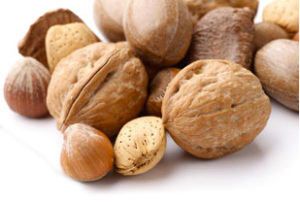
The debate over alcohol continues. While drinking alcohol in large amounts is known to cause health problems (e.g., increases risk of cancer), drinking small or moderate amounts is still debated. Some studies say any amount causes harm, but other studies say "not so fast" - moderate drinking is OK and even has benefits (e.g., lower risk of heart attacks and strokes), especially when drunk with a meal.
A recent large study found a benefit to drinking moderate amounts - it is good for cholesterol levels. When nondrinkers started drinking moderately over the course of the study, it raised "good cholesterol" levels and lowered "bad cholesterol" levels. And surprisingly, when moderate drinkers stopped drinking, "bad cholesterol" levels went up and "good cholesterol" levels went down.
"Good cholesterol" is high-density lipoprotein cholesterol or HDL, and "bad cholesterol" is low-density lipoprotein cholesterol or LDL. Changes in cholesterol levels were associated with how much a person started drinking - the more one drank, the better the cholesterol levels. Improvements were better than taking medications! Results with all types of alcohol (wine, beer, spirits) were the same.
From Ars Technica: Large study shows drinking alcohol is good for your cholesterol levels
Drinking alcohol is bad in many ways; raising a glass can raise your risks of various health problems, such as accidental injuries, liver diseases, high blood pressure, and several types of cancers. But, it's not all bad—in fact, it's surprisingly good for your cholesterol levels, according to a study published today in JAMA Network Open. ...continue reading "Drinking Alcohol Is Beneficial For Cholesterol Levels"

 A newly published study reviewed 61 studies that looked at daily tree nut consumption on cardiovascular risk factors and found many health benefits. Tree nut (walnuts, almonds, pistachios, macadamia nuts, pecans, cashews, hazelnuts, and Brazil nuts) consumption lowers total cholesterol, LDL cholesterol, triglycerides, and ApoB, the primary protein in LDL cholesterol. It appeared that nut dose is more important than nut type in lowering cholesterol. The beneficial health effects are greater at about 60 grams (about 2 oz or 2 servings) or more nuts consumed per day, but positive health effects are also found at one serving per day. Five studies found that 100 g nuts per day lowered concentrations of LDL cholesterol by up to 35 mg/dL - an effect size comparable to some statin regimens.
A newly published study reviewed 61 studies that looked at daily tree nut consumption on cardiovascular risk factors and found many health benefits. Tree nut (walnuts, almonds, pistachios, macadamia nuts, pecans, cashews, hazelnuts, and Brazil nuts) consumption lowers total cholesterol, LDL cholesterol, triglycerides, and ApoB, the primary protein in LDL cholesterol. It appeared that nut dose is more important than nut type in lowering cholesterol. The beneficial health effects are greater at about 60 grams (about 2 oz or 2 servings) or more nuts consumed per day, but positive health effects are also found at one serving per day. Five studies found that 100 g nuts per day lowered concentrations of LDL cholesterol by up to 35 mg/dL - an effect size comparable to some statin regimens.